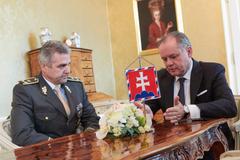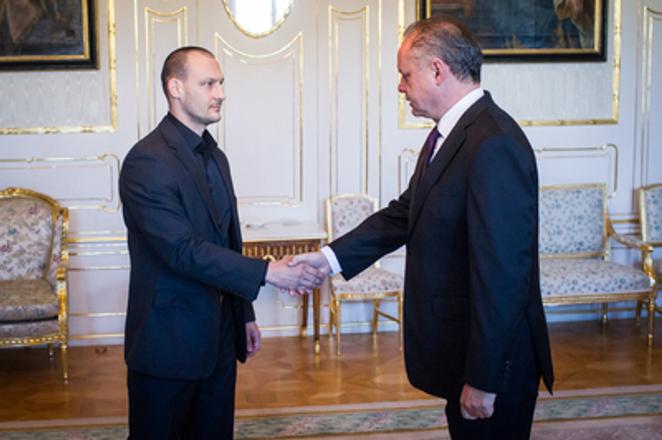The dispute on whether to allow the head of the investigation team dealing with the Gorilla case, Marek Gajdoš, to speak to MPs has not been solved by the parliamentary constitutional committee. It was addressed by the parliamentary committee on defence and security, which wanted to know whether Gajdoš could be invited or not, the Denník N daily reported.
The constitutional parliamentary committee, however, said it is not its concern whom the latter committee will invite, said its chair Róbert Madej (Smer). The MP referred to the parliamentary rules of procedures which stipulate that the members of parliamentary committees can invite leading representatives of the central state bodies, ministers or the general prosecutor, who are all obliged to come. Those the committee may invite also include experts and other people, but they do not have to come.
“The defence and security committee may thus decide on its own, but the constitutional committee would exceed its powers if it took the stance in the matter,” Madej said, as quoted by Denník N. He stressed that he does not want his decision to be perceived as the effort of the coalition to prevent the hearing of Gajdoš.

Richard Vašečka, MP for the Ordinary People and Independent Personalities (OĽaNO), however, considers the decision buck-passing, claiming that the coalition does not want to hear Gajdoš.
The opposition members of the defence and security committee wanted to invite Gajdoš after he had announced his departure from the police. Among the reasons were also the intolerable conditions created by people “having influence on my work”, as reported by Denník N.
Instead of Gajdoš, Interior Minister Robert Kaliňák (Smer) and Police Corps President Tibor Gašpar came to the committee session and said that Gajdoš cannot come as he is bound to secrecy.
The opposition objected to the situation and, thanks to two votes of Most-Híd MPs, passed a resolution based on which they turned to the constitutional committee asking for help, Denník N reported.
Gajdoš has already said he is ready to explain to the defence and security committee’s members why he wants to leave the team that deals with the investigation of the leaked document purporting to describe conversations covertly recorded by the country’s Slovak Information Service (SIS) intelligence service between 2005 and 2006 which suggests that corrupt links may have existed between senior politicians, government officials and business people.
Gašpar has meanwhile submitted a criminal complaint for the potential obstruction of justice and wants Gajdoš to explain inspectors who had prevented him from properly investigating, as reported by Denník N.



 L-R: Marek Gajdoš shakes hands with President Kiska. (source: Sme - Jozef Jakubčo)
L-R: Marek Gajdoš shakes hands with President Kiska. (source: Sme - Jozef Jakubčo)